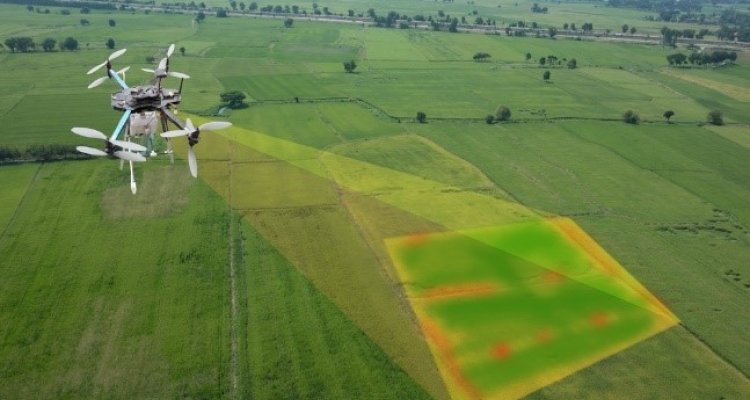
Impact story
More sustainable cultivation through digital phenotyping
Wageningen University & Research (WUR) scientists use robots, drones and other digital technologies to gather essential information on plants. This allows farmers to use pesticides with greater accuracy and supplies plant breeders with the information they need in their search for more climate-robust crops.
The agricultural sector faces significant challenges. Pesticides needed to keep plants healthy also impact biodiversity. Many farmers wonder how they may protect their crops in a cost-effective and ecologically responsible way. WUR contributes through phenotyping: recording external characteristics of plants.
Tractor sensors
Phenotyping is done digitally with increasing frequency. For example, with sensors mounted on a tractor, robots that move autonomously among the crops, but also through the use of drones and satellites. Wageningen experts then analyse the data, for example, in the state-of-the-art Netherlands Plant Eco-phenotyping Center (NPEC).
According to Marleen Riemens, team leader of Crop Health, the readings provide a wealth of information. On the nitrogen level, for example, or whether the soil is too dry or too humid and whether fewer pesticides can be used. Riemers cites the example of the potato plant. By measuring light reflection, the farmer is able to learn whether he needs to apply more fertiliser. In the future, temperature readings are to indicate whether the plant has been affected by nematodes. Thus, the farmer always knows immediately how the plant in the field or greenhouse is doing.
Crop breeding for climate change
The information that is gathered through digital phenotyping is also relevant to plant breeders. The breeders are interested in characteristics that increase the plants’ tolerance for drought or salt. These properties could possibly be activated in other plants, which could be of great value. Particularly in a time in which severe drought and salination occur with increasing frequency.
Robust farming system
Digital phenotyping offers many possibilities to make plants future-proof. But, Riemens stresses, it goes beyond the mere plant. It is about integrating agriculture, technology and ecology into a farming system. This can contribute to health and biodiversity.